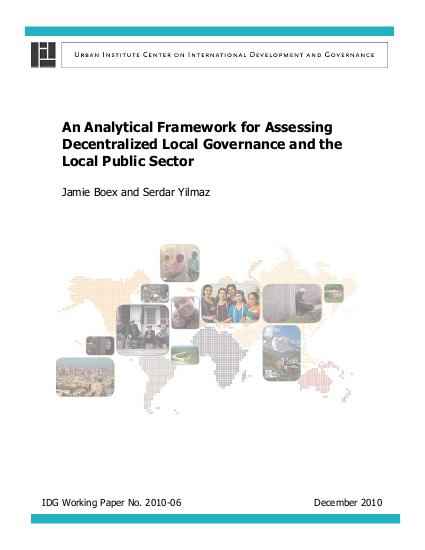
There is a growing recognition within the global development community that the public sector in developing and transition countries must be made to function more effectively and efficiently in the pursuit of their own development and poverty reduction ambitions. This cannot be done without considering the critical role of the local public sector, since most (pro-poor) public services are delivered at the local level, whether by the deconcentrated departments of line ministries or by devolved local government authorities. While the development community seeks to better understand the complex interrelations that drive the performance of decentralized political, administrative and fiscal systems, there is a dearth of relevant comparative information and data when it comes to the details of these decentralized systems, especially in developing and transition economies. This paper proposes a comparative decentralization assessment framework which guides a rapid assessment of a country’s local public sector, including its political-administrative structures, its system of intergovernmental relations and the financing and functioning of the country’s decentralized local governments.
Links
Resource collections
- Evaluating humanitarian action
- UN Habitat - Urban Response Collection
- Urban Response - Urban Crisis Preparedness and Risk Reduction
- Urban Response Collection - Community Engagement and Social Cohesion
- Urban Response Collection - Economic Recovery
- Urban Response Collection - Environment and Climate Change
- Urban Response Collection - Housing, Land and Property
- Urban Response Collection - Urban Crisis Response, Recovery and Reconstruction
- Urban Response Collection - Urban Resilience